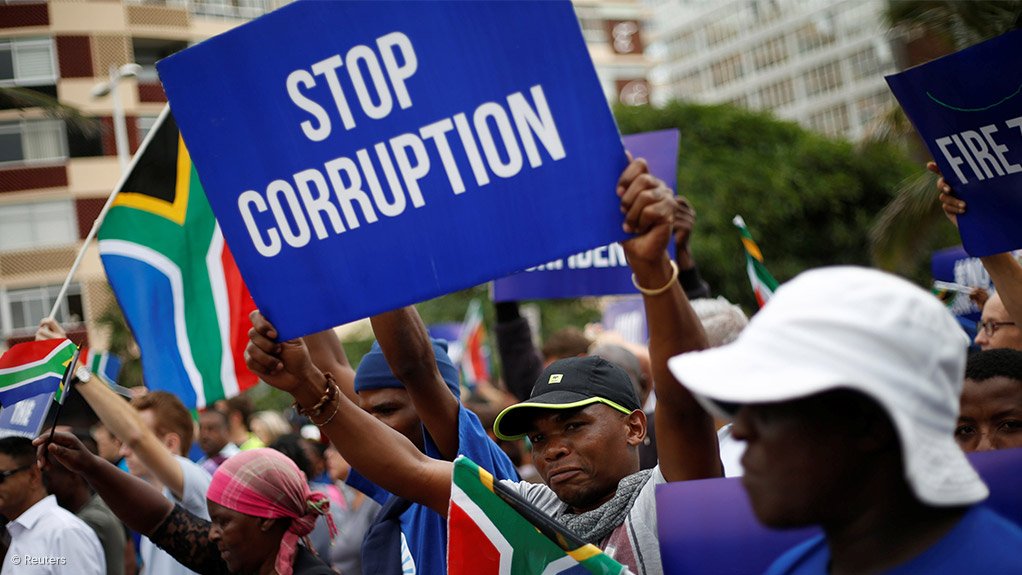Nonprofit organisation Corruption Watch (CW) finds in the sixth edition of its ‘Analysis of Corruption Trends’ (ACT) report that fraud made up the majority of whistle-blower reports in the six months ended June 30, and that these issues were most prevalent in Gauteng.
The organisation says about 1 030 whistle-blower reports were received by the relevant South African authorities between January and June, which highlights how public and private sector corruption continues to obstruct basic human rights.
CW notes fraud accounted for 35% of total reports, while abuse of authority – including victimisation of whistle-blowers – and maladministration, made up 17% of the reports, respectively.
Bribery and extortion-related reports followed at 16% and procurement irregularities at 15%.
The highest number of reports, accounting for two-thirds of all reports received during the period, stem from Gauteng (43%), followed by the Western Cape accounting for 9% of all corruption reports, and KwaZulu-Natal and Limpopo accounting for 8% of all reports each.
The report shows that 62% of complaints classified as corruption stem from the public sector, while 25% originate from the private sector. The remainder of complaints are classified as “unknown” or “none”.
The most common corruption types in the private sector are fraud, at 56%, and maladministration, at 25%, mostly compliance related.
On the other hand, corruption trends in the public sector relate to abuses of authority, bribery and extortion, and procurement and employment irregularities.
CW finds that policing, basic education, State-owned enterprises, construction and traffic licensing are among the government segments most often reported for corrupt practices, while corruption in legal and financial services, private healthcare and mining activities in the private sector is most often reported.
CW says it is no surprise that policing, including the national South African Police Service, local police and private security, continues to feature prominently in the ACT.
The organisation reports that little seems to have shifted in this regard, despite an increased focus on corruption in the sector by civil society and lobby groups.
The emergence of reports in the construction sector is the result of the refinement of South Africa’s classification system, CW explains, which has highlighted irregularities in the sector that did not originate this year.
Many of these reports related to public sector project’s such as schools, clinics, hospitals and other projects intended to provide services to communities. CW notes that, when companies are illegally appointed, or procurement regulations are contravened, the consequences are devastating.
CW senior researcher and ACT author Melusi Ncala says corruption has serious consequences for many people in the country, adding that the appalling state of towns and cities and the millions of people living in poverty in the country, are the result of an incompetent leadership that has underperformed in addressing rampant corruption.
“Think of the decrepit state of our public infrastructure, which is poorly maintained or collapsing, the scores of people who find themselves homeless and landless, or those waiting at clinics for vital medication and treatment that is simply not available.
“These examples are just a drop in the ocean, when one considers the extent to which our society, the most unequal in the world, continues to fail its people, due to corruption, incompetence, and poor leadership in government and businesses,” he states.
Moreover, Ncala points out how greater bravery and courage to blow the whistle on corrupt practices will inform and inspire more urgent and radical action.
“It is upon each person to prioritise the needs of a democratic society and not the politics of the stomach,” he says.
EMAIL THIS ARTICLE SAVE THIS ARTICLE ARTICLE ENQUIRY
To subscribe email subscriptions@creamermedia.co.za or click here
To advertise email advertising@creamermedia.co.za or click here











